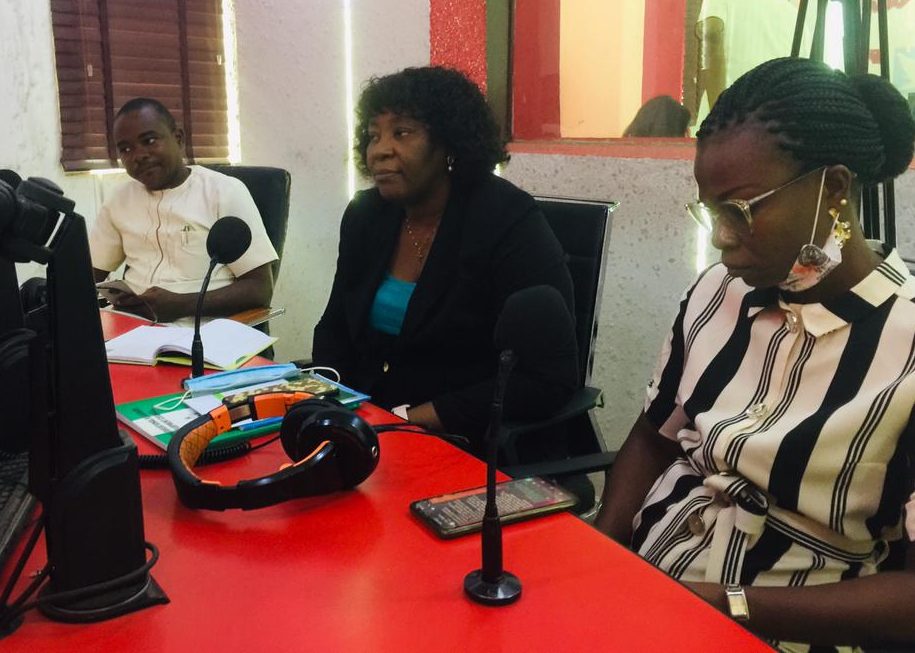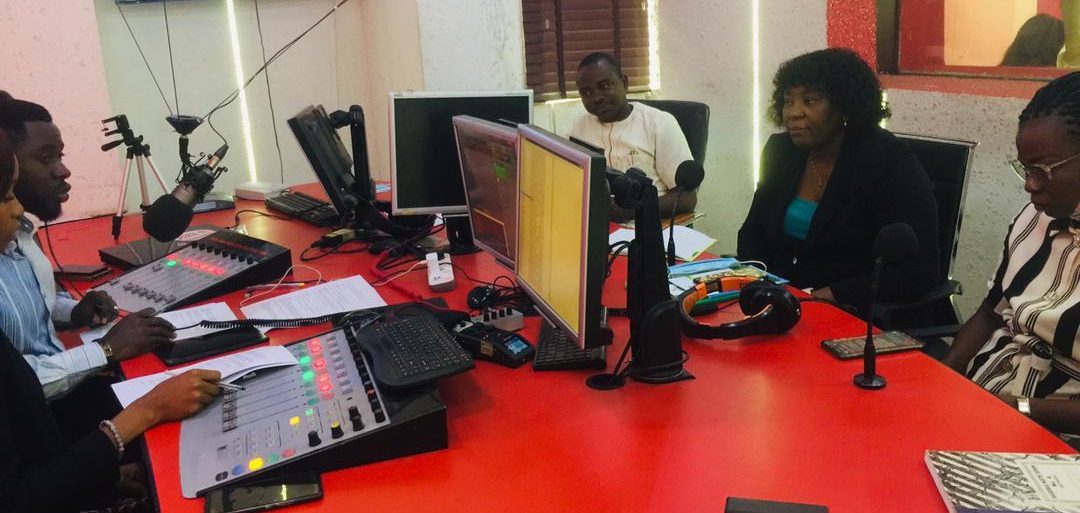In a bid to inculcate integrity in Nigeria’s educational system, the Independent Corrupt Practices and Other Related Offences Commission (ICPC) has revealed that it is pushing hard to get all stakeholders to implement the school curriculum infused with national values to fight corruption at the base.
 ICPC’s Spokesperson, Azuka Ogugua made this known during a radio program, PUBLIC CONSCIENCE on RADIO, produced by the Progressive Impact Organization for Community Development, PRIMORG, Wednesday in Abuja.
ICPC’s Spokesperson, Azuka Ogugua made this known during a radio program, PUBLIC CONSCIENCE on RADIO, produced by the Progressive Impact Organization for Community Development, PRIMORG, Wednesday in Abuja.
Ogugua said that despite integrity already being taught in schools, the commission developed a fully packaged curriculum which is now infused into existing school subjects referred to as carrier subjects.
She urged teachers to take the teaching of national values to the next level by training pupils and students under their care through living by example rather than by mere words.
“If I am talking to teachers right now, what I will tell them is that ICPC is developing the national value curriculum and the national ethics and integrity policy but you the teachers are the ones needed to take it up to the next level.
“You are the ones to train these students, train more by example than by your words. So be the role model that the students will copy.”
She further disclosed that the national values curriculum which is for the teaching of values and ethics at all levels of education, starting from primary (basic), secondary (post-basic), and tertiary institutions were recording marked progress, before the development of National Ethics and Integrity Policy by ICPC.
“ICPC identified 12 core values, these values are already topics in civic education but are now built into different subjects having been developed into objectives and teaching methodology.”
The values include honesty, discipline, the right attitude to work, citizen rights and duties, national conscience, contentment, regard, courage, family values, religious values, and traditional values.
 Ogugua, however, noted that the success of the scheme is faced with budgetary challenges which the commission hopes to overcome, adding that the impact of teaching integrity in schools is also greatly affected by poor home training of pupils and students, hence, the reason why the commission is training teachers.
Ogugua, however, noted that the success of the scheme is faced with budgetary challenges which the commission hopes to overcome, adding that the impact of teaching integrity in schools is also greatly affected by poor home training of pupils and students, hence, the reason why the commission is training teachers.
“ICPC introduced the teaching of values in colleges of education knowing that it is a place for breeding teachers. We want teacher’s training to encompass aspects of the national value curriculum that already exists.
“We are right now concentrating a lot of effort on teacher education; we have been taking it round some states because the curriculum was developed at the federal level,” Ogugua stated.
On combating incidents of corruption in form of exam malpractices and sex for a mark which are still pervasive in the school in Nigeria, Ogugua said it was it is another level of intervention by the commission which is not based on the curriculum.
Her words: “ICPC has clubs in schools. Students in these clubs are taught integrity by ICPC. They are taught that one of their duties is to monitor exams and enlighten other students. We also engage with exam bodies like WAEC, NECO, JAMB to see that exam malpractice is reduced in schools,” she said.
On his part, the Executive Director, Center for Education, Empowerment, and Orientation, David Crown Oyebisi identified Poor remuneration of teachers and wrong values as being responsible for eroding moral values in Nigerian schools.
He stressed that the revival of teachers’ character was key to the development of the country while agreeing that Nigerian society needs anti-corruption clubs, groups, and associations for pupils, students, and teachers to boost efforts of teaching integrity principles in schools.
 He urged the federal government to religiously implement the framework put in place by ICPC; fund any campaign aimed at promoting moral values in the society, and heavily invest in education with priority placed on teachers’ education.
He urged the federal government to religiously implement the framework put in place by ICPC; fund any campaign aimed at promoting moral values in the society, and heavily invest in education with priority placed on teachers’ education.
On the rising cases of exam practice in Nigerian schools, Oyebisi had these to say: “Many schools in Nigeria (private and public) are not working in line with the core values especially in the area of integrity; If you have 100 schools today you can hardly find 10 that are not involved in exam malpractices.
“So, how are you working in line with the vision of education. So, it still comes back to role modeling. It is not what you teach but what you display,” He emphasized.
Public Conscience is a syndicated weekly anti-corruption radio program used by PRIMORG to draw government and citizens’ attention to corruption and integrity issues in Nigeria
About Author
You may also like
-
NEIP: ICPC Harps On Collective Fight Against Corruption
-
ICPC Says Constituency Projects Tracking Declining Corruption, Urge Nigerians To Report Infractions
-
Birth Certificates: Corruption Unabated in Registration Centers — FG Alerted
-
SGBV Epidemic: Father of Rape Victim Cries Out For Justice
-
Cross River Education Projects Undermined By Contract Frauds – Stakeholders Raise Alarm

